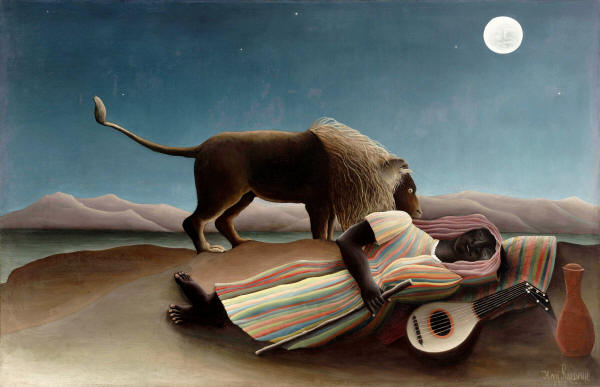The Nature of Dreams
"Catch your dreams before they slip away .. Dying all the time .. Lose your dreams and you will lose your mind." Ruby Tuesday-The Rolling Stones
To the early Greeks and Romans, interpreting dreams was seen as a way of understanding messages from the gods. In Greek mythology Hypnos was the god of sleep. Hypnos and Thanatos, the god of death, were twin brothers, the sons of Nyx, god of the night. Hypnos's son, Morpheus, brought dreams to human beings. His brother, Icelus, was thought by the Greeks to bring dreams to animals, while a third brother, Phantasus, brought dreams to inanimate objects. (Stanley Krippner)

First comes drowsiness and a sense that it is time to rest. Eyelids grow heavy. Stray thoughts flicker through the mind as sleep begins, often with a sudden twitch. And then the human brain falls into a state of profound madness filled with hallucinations, delusions and confabulations. Dreams unfold. We walk, run, fly and float through strange landscapes. Characters appear and turn into different people. Objects are transformed. A rope becomes a snake. Uncle Harry turns into a Tibetan monk and it all makes sense in some screwy, dreamlike way. (reference)
Over the millennia, the source of dreams has been seen as divine, demonic, the dreamer's "soul," the dreamer's environment, the dreamer's unconscious, the dreamer's imagination, and the dreamer's brain. For some, dream interpretation is a waste of time because dreams are meaningless; for some, dream interpretation must be done by an expert, while for others, dreamers can learn the skills needed to understand their own dreams. (Stanley Krippner)
Dreams are a most remarkable experiment in psychology and neuroscience, conducted every night in every sleeping person. They show that our brain, disconnected from the environment, can generate by itself an entire world of conscious experiences. (reference) According to Carl Gustav Jung, a proeminent Swiss psychiatrist and psychoanalyst who founded analytical psychology, the meaning of most dreams is not in accord with the tendencies of the conscious mind but shows peculiar deviations. Jung suggested that we should assume that the unconscious, the matrix of dreams, has an autonomous independent function. The dream not only fails to obey our will but very often stands in flagrant opposition to our conscious intentions.
Since dreams are thought to be a direct bridge between our conscious and unconscious minds, Jung believed that dream images reveal something about yourself, your relationships with others, and situations in your waking life. Dreams guide your personal growth and help in achieving your full potential. Jung also believed that the dream's manifest content is just as significant and revealing as the latent content. By simply discussing what is currently going on in your life, it can help you interpret and unlock the cryptic images of your dreams. Jung's method of dream interpretation is placed more confidently on the dreamer. He believed that all dreamers possessed the necessary tools to interpret theirown dreams. There is no one correct way to interpret a dream. The meaning of your dreams is a personal judgment and is up to you on how to interpret them. Whatever interpretation feels right to you is most significant and more important than what someone else thinks or believes. (reference)
See also: Booze and dreams, Dreams and brain disorders, Dreams as a source of inspiration, Essential oils, Food and dreams, Hypnagogic state, Neuroprotective agents, Sleeping brain, Sleep deprivation, Weed and dreams

Connect with us
Contact us today